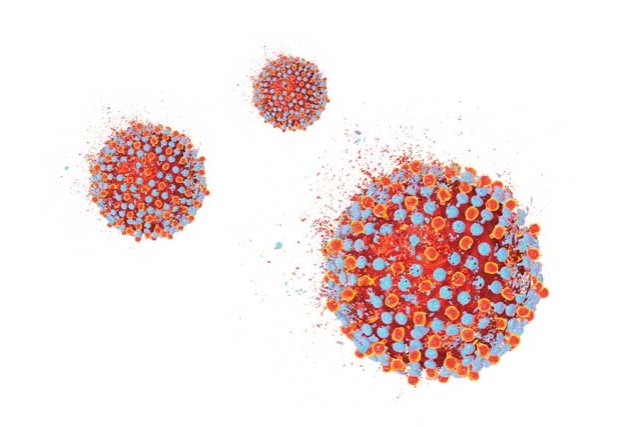An estimated 2.4 million people in the United States are living with hepatitis C virus (HCV) infection, according to the Centers for Disease Control and Prevention (CDC). Many people may not know because it can take years for symptoms to appear. The CDC has reported that “baby boomers” are five times more likely to have hepatitis C than other adults. Here to explain more about this health issue are board-certified gastroenterologist and internal medicine physician David Q. Shih, MD, PhD, of Comprehensive Digestive Institute of Nevada, and a member of his research team, Madeline Hong.
Q: What is HCV infection, and how is it transmitted?
HCV infection is a global health problem that can progress to scarring of the liver (cirrhosis) and end-stage liver disease in a substantial proportion of patients. It also may lead to serious complications such as liver cancer. It is usually transmitted through blood contact and can be transmitted less commonly through sexual intercourse.
Q: How do I know if I’m infected?
Since HCV infection is frequently asymptomatic, screening patients who may have an increased likelihood of being infected is an important step toward reducing cirrhosis and complications associated with HCV. The U.S. Preventive Services Task Force has recommended screening “all adults between the ages of 18 and 79 for the hepatitis C virus regardless of their risk level of contracting the disease.” Screening involves just a simple blood test.
Q: What if I have HCV?
Patients with HCV should avoid alcohol and get vaccinated for hepatitis A and B to prevent further damage to the liver. Also, treatment is recommended for patients with HCV infection and is now faster and more effective than in the past, thanks to scientific advances. It’s important to take medicine as directed, because straying from the regimen can result in treatment failure. Approximately three to six months after discontinuing treatment, your doctor will test to see if there is detectable virus in your bloodstream.
Q: Can hepatitis C be cured?
If no detectable virus is found in your bloodstream after testing, you are cured. However, people with cirrhosis have a small risk of worsening liver disease or liver cancer even after being cured. Thus, it’s important to follow up with your doctor for blood work every six months and an imaging study of your liver every year.
If you are between the ages of 18-79 years old, ask your doctor about getting screened for HCV if you have not yet had this screening.

